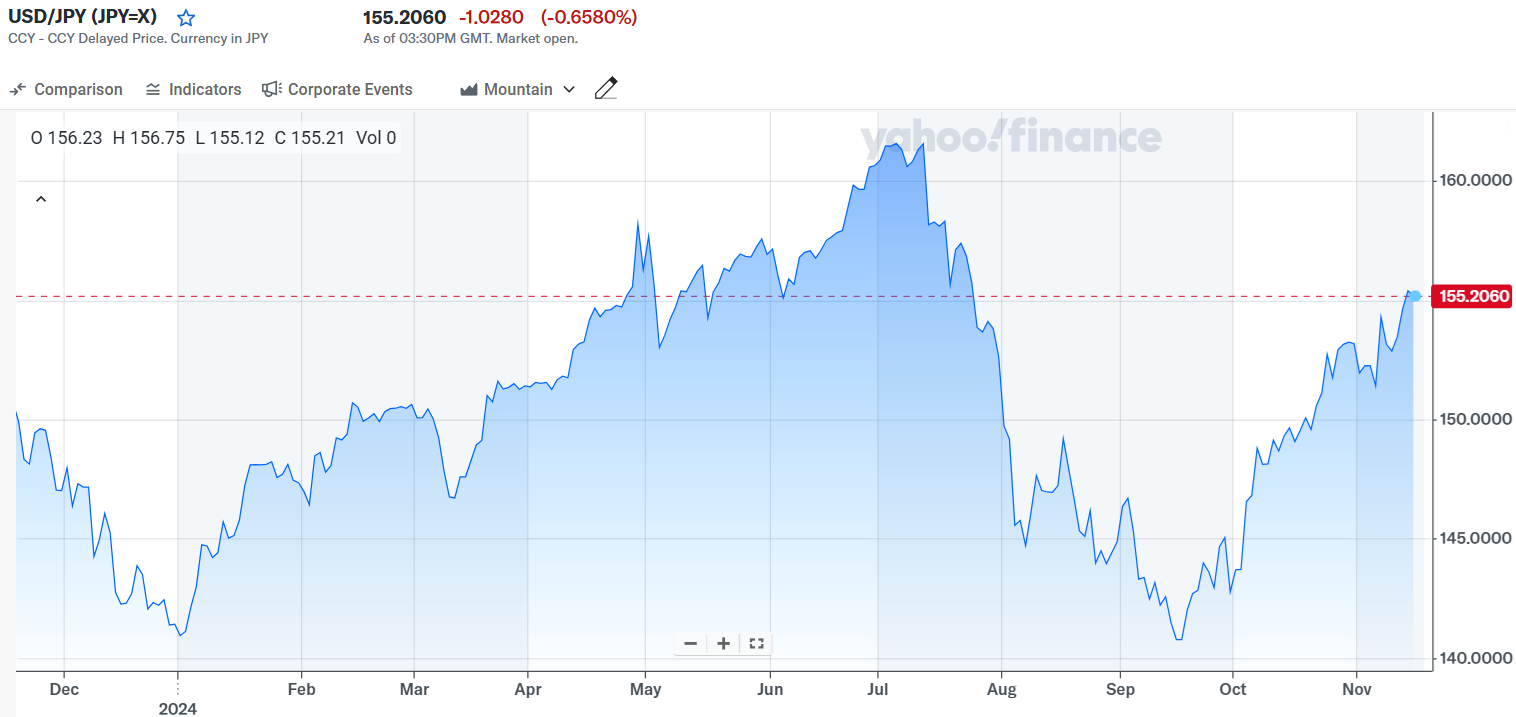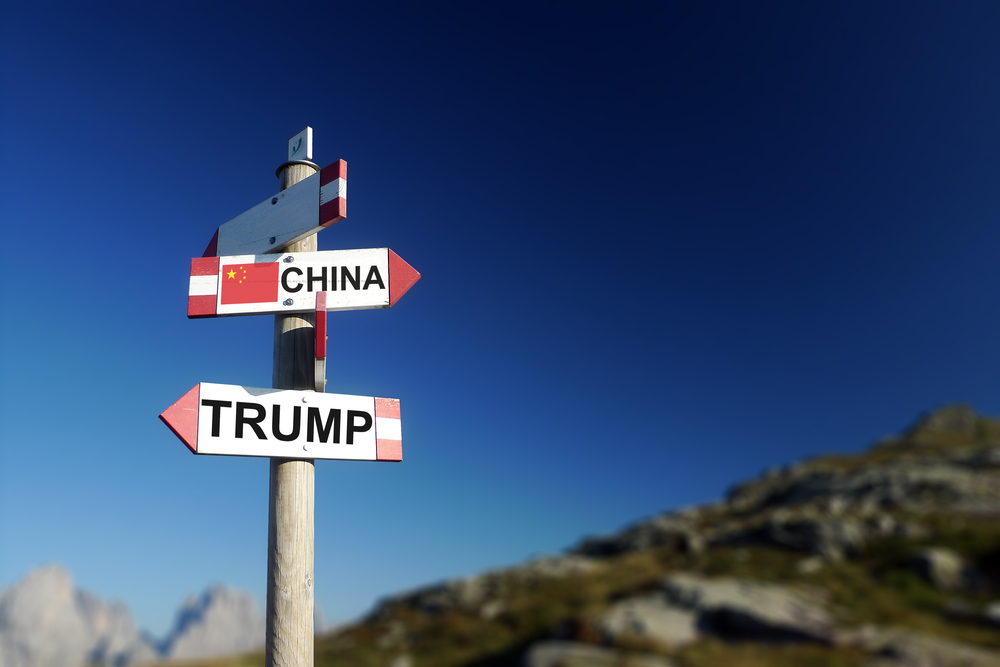
Source: Yahoo Finance
Yen's Response
The Trump administration’s potential impact on Asian economies, particularly Japan, has stirred financial markets and created a challenging environment for policymakers. Since Trump’s election victory, the Japanese yen has fallen nearly 3% against the U.S. dollar and has lost 11% from its peak in mid-September. This currency shift has spurred calls for the Bank of Japan to consider raising interest rates from the current 0.25% to help stabilize the yen. However, the BoJ faces a complex dilemma: while an interest rate hike could support the yen, it might also reduce consumer spending and increase debt costs, potentially stalling Japan’s economic recovery. Another factor is how will the yen react to Trump’s import tariffs would affect the exchange rate.
Stock Market Response
Japan’s equity markets have also experienced turbulence. Initially, the Nikkei 225 index rose about 3% in the sessions following Trump’s election, as investors anticipated potential benefits for trade and stimulus. However, the rally soon halted, with the index dropping by a similar margin as investors grew more concerned about Trump's stance on international trade and protectionism. Japan’s heavy reliance on exports, particularly to the U.S., makes the country vulnerable to shifts in U.S. trade policies that could impact manufacturing and other pro-export sectors, posing risks to Japan's future growth.
Fiscal Stimulus
To address rising prices, the Japanese government is also preparing a 13.5 trillion yen ($87 billion) supplementary budget aimed at supporting low-income households. Reports indicate that the plan includes payments of 30,000 yen ($193) to low-income households exempt from residential taxes and an additional 20,000 yen per child for qualifying families. To offset high fuel costs, the government plans to restart electricity and gas subsidies for three months beginning in January.
Conclusion
Reactions across Asian stock markets reflect uncertainty regarding Trump's second term, particularly in terms of trade. His pre-election promises included high tariffs on imports, causing concern even in Japan, a close U.S. ally in the Asia-Pacific region, over what could become the most challenging trade barriers since World War II. Other countries, especially China, are even more concerned, as Trump has repeatedly proposed stricter policies on U.S.-China trade. The outlook, therefore, remains uncertain as Asian economies brace for potential shifts under Trump’s policies.




